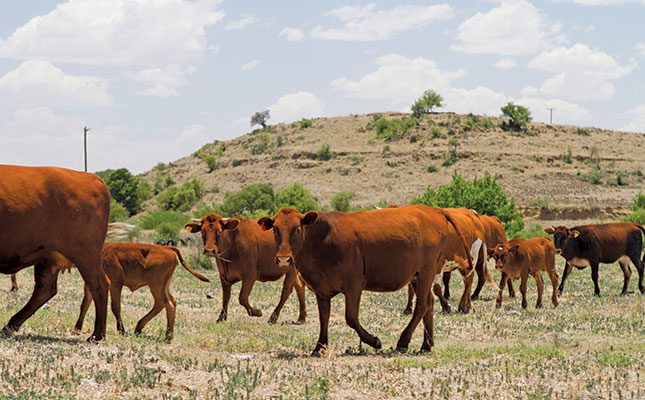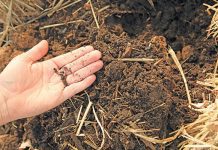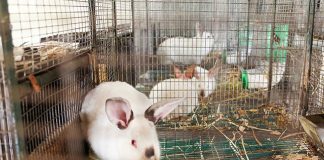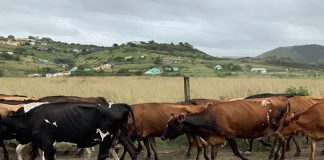
Photo: FW Archive
According to department spokesperson Reggie Ngcobo, the three cases are in the Humansdorp area in the Eastern Cape. He said all farms within a 10km radius of the infected farms had also been placed under quarantine while continued tracing takes place.
According to Ngcobo, the SAT3 virus responsible for the outbreak on the index farm was almost identical to the virus that caused the widespread FMD outbreaks in 2021 and 2022 in Limpopo, North West, Free State, Gauteng and Mpumalanga.
READ Establishing effective biosecurity measures on your farm
“The Eastern Cape Provincial Veterinary Services placed the index farm under quarantine and a full epidemiological investigation commenced to identify the possible origin and any other properties that could be at risk.”
He said the immediate neighbours and all linked locations were placed under precautionary quarantine, pending clinical and serological investigation to determine their FMD status.
“One additional farm was found to be positive for FMD as a result of the forward and backward tracing. Cattle and sheep on the two affected farms were vaccinated against FMD to reduce the viral load on these farms.”
Ngcobo said a third farm in the Humansdorp area where animals were showing clinical signs of FMD was then brought to their attention.
“Eastern Cape Provincial Veterinary Services visited the farm on 14 May 2024 and confirmed that the clinical signs are highly suspicious for FMD. Samples were collected and dispatched to the laboratory and the results confirmed FMD infection on the farm.”
Speaking about controlling the spread, he said farmers were advised to not allow animals onto their farms without a health clearance from a veterinarian at origin of the animals.
READ Farmers urged to update animal health programmes for winter
“Even if animals appear to be healthy, they can be in the early stages of infection (incubation period) where they are shedding the virus without showing clinical signs of disease yet.”
However, he said area-wide movement controls had not been implemented at this stage.
“Regarding the recent calls for area wide movement restrictions, the decision to implement movement controls in large areas is not taken lightly as they tend to be highly disruptive to industry as a whole by impacting not only those whose animals are affected but also innocent bystanders. Restrictions must be duly gazetted.
“In the meantime, all properties where the disease has been confirmed, as well as farms in the 10km radius, have been placed under quarantine. No susceptible animals (cattle, sheep, goats, pigs and cloven-hooved game) are allowed to be moved onto, out of or through these farms.”
Meanwhile, according to the Red Meat Producers’ Organisation in the Eastern Cape, Veterinary Services have created a priority farm list, which they are working on to take serological surveillance samples from farms surrounding the original sites as well as the suspected farm, in order to understand the extent of the spread.
“It is in the interest of all producers, agents, transporters, speculators and organisational representatives to work together to ensure that the source of the virus is identified and does not spread,” the organisation said in a statement.











